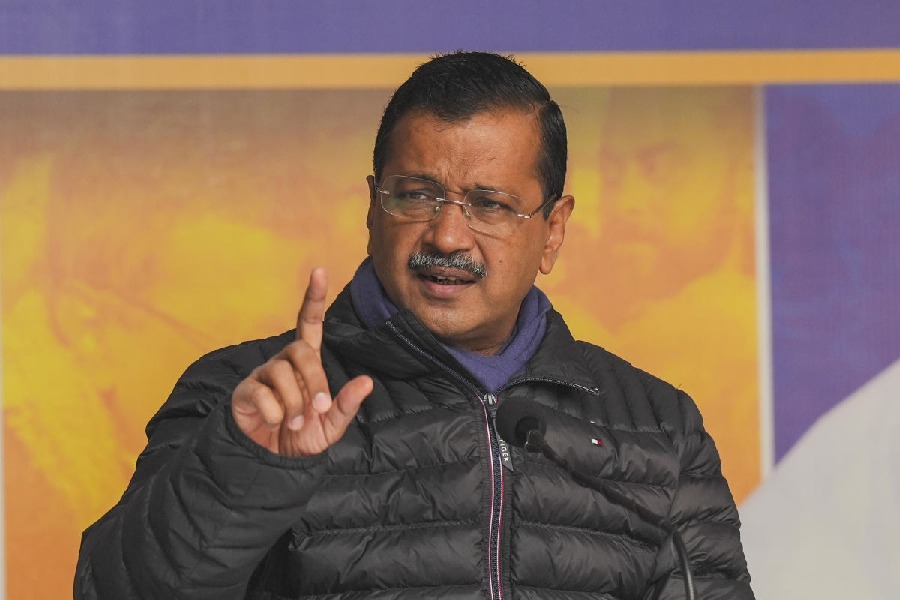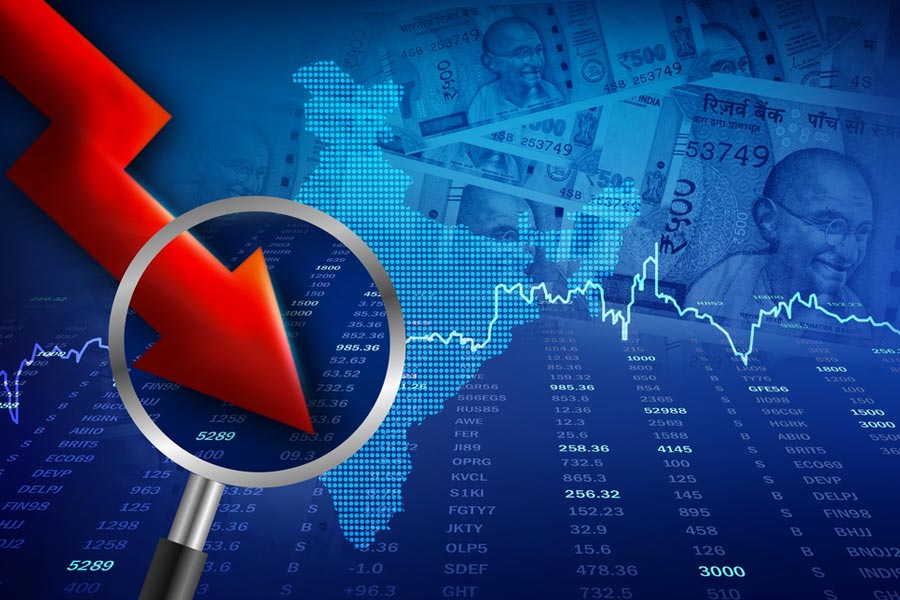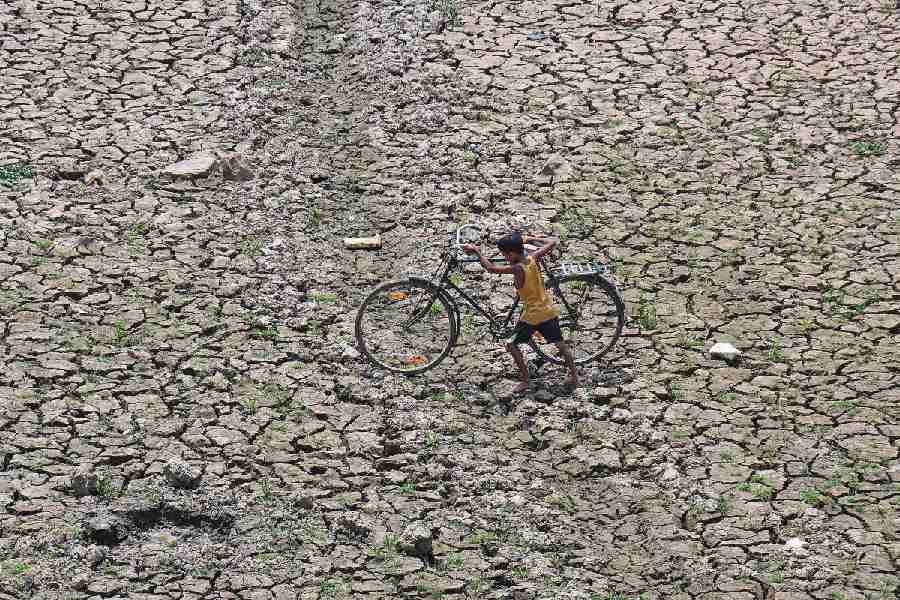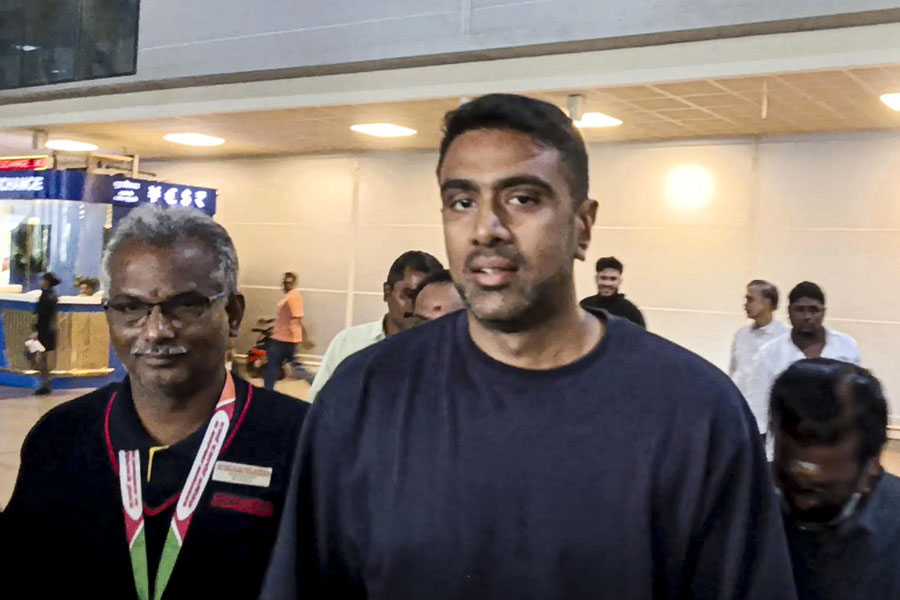Jumbled words
Sir — What’s in a name, the Bard had wondered. But the Bard has been proven wrong by bureaucracy. All of India’s laws were recently overhauled in an apparent attempt to decolonise the country. Yet, official documents in India still insist on a rigid structure of printing the first name, middle name and surname, in that sequence, on documents like the PAN and the Aadhaar cards, among others. But Indian names often do not follow this sequence. In South India, for instance, lineage and geography are honoured by placing the names of one’s village and/or parents before one’s name. Insisting on following a Eurocentric naming structure, then, leads to comical situations where people end up being addressed by the name of their villages or parents.
Namita Sen, Calcutta
Power hungry
Sir — The average age of parliamentarians elected to the 18th Lok Sabha is 56 years. This clearly indicates that the Indian Parliament is gradually turning into a ‘grey zone’ (“Golden oldies”, Nov 29). A lack of intra-party democracy and the belief that politics is the cradle of corruption prevent the youth of our country from joining politics. The young prime ministers of Finland and Bhutan can be role models for our youth. Young politicians are likely to be more vocal on contemporary issues, such as climate change, gender justice and so on.
Prasun Kumar Dutta, West Midnapore
Sir — While even a healthy person working in the public or the private sector has to retire compulsorily at about sixty years of age, politicians have no such compulsion. They prefer to hold on to the privileges afforded by positions of power. A recent instance of this is Joe Biden who, for a long time, insisted on contesting for the post of president of the United States of America despite his declining health.
Sanjit Ghatak, Calcutta
Sir — There is no addiction greater than power. This is the reason politicians tend to hold on to their posts well into their old age. Political veterans are unwilling to acknowledge that they are not equipped to resolve current problems. Issues like water scarcity, soil erosion and global warming need innovative techniques from young guns to solve them. There should be a blend of youth and experience in politics.
Vinay Asawa, Howrah
Name game
Sir — Finalising the name of the chief minister of Maharashtra seems to be posing a bigger hurdle for the Bharatiya Janata Party than winning the elections. The race between the BJP’s Devendra Fadnavis and Shiv Sena’s Eknath Shinde to occupy the chief minister’s chair went on for a while (“Shinde power play hits home”, Dec 1). Although the swearing-in ceremony of the new government is likely to take place on December 5, there has been no official report from the Raj Bhavan on this issue so far. In the meantime, Shinde had returned to Maharashtra and apparently taken ill after his meeting with the Union home minister, Amit Shah, and other members of the Mahayuti. The delay in forming the government has wasted precious time that should have been spent working for the people of Maharashtra.
A.P. Thiruvadi, Chennai
Sir — In the run-up to the assembly elections in Maharashtra, many BJP leaders had declared that they were confident of a win under the leadership of the incumbent chief minister, Eknath Shinde. Yet, Maharashtra is still looking for a chief minister days after the election results were announced, with Shinde perhaps hoping to at least wrangle a shared term in office.
R. Narayanan, Navi Mumbai
Sir — Eknath Shinde has allegedly offered a compromise to Amit Shah. Shinde has proposed to extend outside support to the BJP in the Lok Sabha — the Shiv Sena has seven members in the lower House — to advance the larger cause of Hindutva. Shinde also seems to have turned down the positions of a cabinet minister at the Centre and the deputy chief minister in the state which were offered to him by the BJP. The delay in the announcement of the chief minister has raised questions about the stability and the unity of the Mahayuti alliance.
S.S. Paul, Nadia
Unfair pay
Sir — It is a shame that the salary of the 25 lakh cook-cum-helpers under the mid-day meal scheme has not been increased since 2009 (“Pay hike? ‘Honour’ tag on offer”, Nov 27). These workers are rendering valuable services. Yet their salaries remain static while those of ministers and others keep rising. Although some states like Kerala provide additional funds to these cook-cum-helpers or even increase their remuneration, this ends up creating a pay disparity among the states.
Sujit De, Calcutta
Sir — The monthly remuneration of cook-cum-helpers employed in West Bengal under the mid-day meal scheme is not enough given the rising prices of commodities. The government should also take into consideration that those working under this scheme are mostly poor women, many of whom are widows. Their salaries should be increased.
Shyamal Thakur, East Burdwan
Seasonal treats
Sir — Kalimpong is going to host the third edition of its Orange Festival in December as it has been doing for the last two winters. These hill oranges are likely to be more juicy and tasty than the ones from Nagpur.
Murtaza Ahmad, Calcutta
Sir — Bengal’s markets are presently flooded with Jaynagar-er moa, a well-known winter delight. Moa pheriwalas carrying baskets on their heads with boxes of this sweetmeat are also visiting paras every other day.
Sourish Misra, Calcutta










